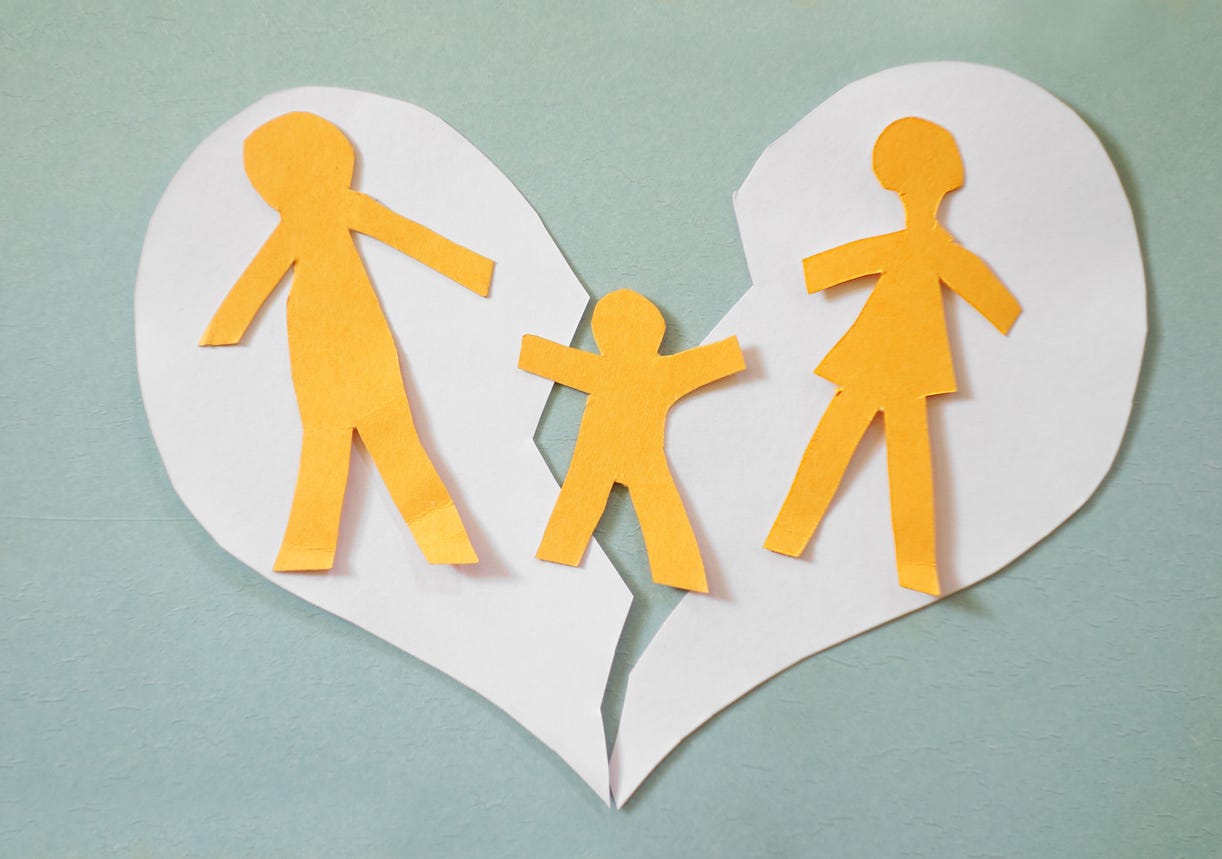But What About the Abusive Parents?
This is what many people ask when I discuss how important it is to involve parents in counseling
I’m a child/teen and family therapist who was trained at New York University. I also took extra classes at the prestigious Ackerman Institute for the Family and attended a full year family therapy post-graduate training course in Berkeley, California. These institutions were predominantly left leaning and so were my classmates, yet none of them would think to ask such a ludicrous question at that time. They understood the importance of including parents and families in child therapy. This has been understood since I entered the field in 1997, and long before that.
However, in recent years, this attitude has changed. The fact that mental health professionals, those who work with the most vulnerable populations behind closed doors, believe that shutting parents out is best practice is alarming. If therapists believe parents are the enemy, at best the therapy will be unsuccessful. At worst, it sends impressionable kids into the hands of predators such as online pedophiles. Before this recent cultural shift, mental health care was in the business of connecting families.
First let me answer the title question directly. Child therapists are mandated reporters. If a therapist suspects genuine child abuse or neglect, she/he must call the authorities. Even when it’s been determined by Child Protective Services that there is child abuse in the home, the child welfare system makes an effort to provide services and support to the families with the goal of reunification. If the so-called abuse does not meet criteria for a foster home, it is the therapist’s job to assist that family. A child/teen therapist is likely to encounter many toxic home environments. The therapist’s primary job: to help struggling children and families. In fact, problems at home are the main reason to involve parents. Do people who ask this believe that sending a child back to a “toxic” home without intervention is going to be beneficial?
There are many important reasons why a therapist should make every effort to include parents, especially the “bad” parents. Even an honest child can’t tell the whole story and no child knows his/her developmental milestones. And lets just be real for a second, kids aren’t always so honest, especially teenagers.
When I work with a teen and get to know him/her, I’m often stuck on understanding the full picture until I talk with a parent and learn more. I learn more about the child, but a big part of the assessment is also getting to know the parent. That parent might be very stressed out, struggling with grief, or need extra help. Learning this type of information gives me important background that I can use to treat the child and ultimately treat the family. If the issues lie within the family, which is common, child treatment without family contact will fail.
People also need to understand that involving parents doesn’t mean disclosing every embarrassing detail the teen discusses. However, important information such as a new gender identity needs to be disclosed to the family. Therapists are taught to assume parents that won’t accept their child and immediately “affirm” a new gender identity are bigots and transphobic and will “kill” their child. This is far from the truth. In fact, according to Abigail Shier, 80% of families that have a child who identifies as transgender are left leaning. This trend is happening more often in liberal areas. Also, the notion that a child will commit suicide if their trans identity isn’t immediately affirmed is a flat out lie based on faulty data. The main study sited for this claim only has a sample side of 27 and has since been retracted. Click here for a great article explaining the faulty data on the "suicide lie" by Cat Cattinson.
This is a sample of school counseling training materials. The American School Counseling Association (ASCA) is an organization that provides training for school counselors in K-12. Their mission is to create social justice agents for systemic change rather than provide unbiased mental health support. It is noteworthy that 8 out of 10 of these bullets are not specific to mental health.
This slide above is by “Courage is a Habit”, which educates parents on what is happening in schools behind closed doors. Click here for great resources on this topic by www.courageisahabit.org
It’s strange for me to say this, but as someone who worked in schools for over 15 years, including 10 as a clinical supervisor, I specifically don’t trust school counselors anymore. They’re being trained to turn their students against loving parents. If your child is in any school (even a private or religious school), I strongly recommend that you instruct the administration that your child can not see a counselor without your written permission and oversight. If your child is in private therapy, make sure the therapist involves you and supports you and your values. Families need to be supported and be strengthened, not torn apart.
Pamela Garfield-Jaeger is a licensed clinical social worker in California. She completed her MSW in 1999 from New York University. She has a variety of experience in schools, group homes, hospitals and community-based organizations. Since getting fired for not getting the C*VID vaccine, she has dedicated herself to educate parents and embolden other mental health professionals to challenge the ideological capture of her profession.
For more detailed information on how to empower yourself as a parent and navigate the mental health field, see the Parents' Guide to Mental Health.





